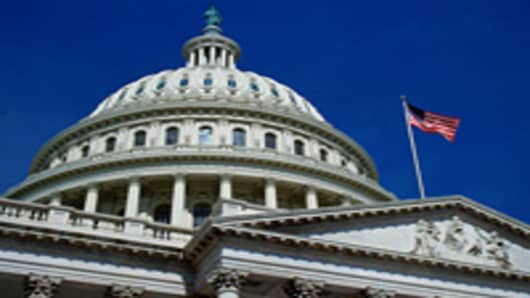The day after the Senate passed President barack Obama’s Wall Street reform legislation, the financial industry’s representatives are combing through the legislation andtrying to figure out exactly who their new regulators in Washington will be.
There are a lot of changes in store, naturally.
And while almost everyone following the debate is already familiar with the new Consumer Financial Protection Bureau, not many have heard of the Office of Financial Research, or do they realize that the law will eliminate the Office of Thrift Supervision.
Here’s a handy guide to the new regulators:
- Financial Stability Oversight Council
The council will be made up of 10 federal financial regulators and an independent member as well as five non-voting members.
Its job: Spotting emerging risks throughout the financial system. But Wall Street will be watching most closely as this council decides which firms are to be considered “systemically significant” and therefore subject to a heightened level of scrutiny.
Firms like Fidelity Investmentsand General Electric , the parent company of CNBC, will be watching especially closely, because it’s unclear whether they will warrant the “systemically significant” designation. The council's first quarterly meeting will be in October.
- Office of Financial Research
This fairly obscure new entity, slated to be up and running by July 2011, will be responsible for analyzing data on systemic risk, and it will be able to request information from any financial company. In the meantime, a director must be appointed by the President and approved by the Senate.
- Office of Insurance
All of the big insurance firms, such as MetLife and Prudential , will find themselves dealing with this office, which has the task of gathering information about the insurance industry.
This office will focus on whether firms are providing under-served communities with access to affordable insurance products, and it will also monitor systemic risk threats in the industry. The office, to be housed inside the Treasury and its director appointed by the Treasury Secretary, will issue its first report to Congress on September 30, 2011.
- Office of the Investor Advocate
Think of this office as the one that whistleblower Harry Markopolos built. Its regulators will be in charge of spotting areas where investors have significant problems dealing with the SEC—just as Markopolos did when he repeatedly attempted to alert the SEC to the multibillion dollar Ponzi scheme of Bernard Madoff. Its first annual report is due to Congress by next June 30.
- Consumer Financial Protection Bureau
This new watchdog agency is designed to make sure that Americans get clear and accurate information as they deal with mortgage lenders, credit card companies and other financial firms. That idea was, of course, one of the focal points of the reform bill debate.
Banks with lots of consumer businesses will find themselves spending the most time with this bureau. It is set to be up and running by next July.



